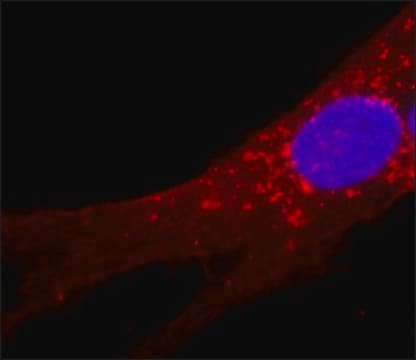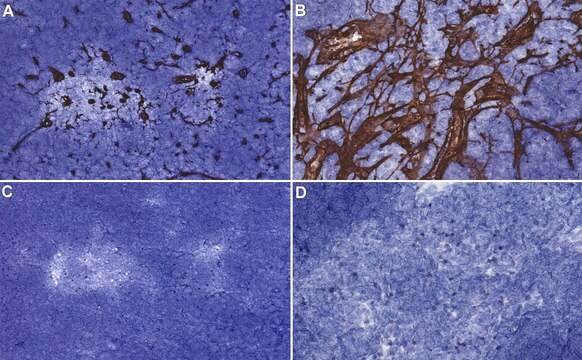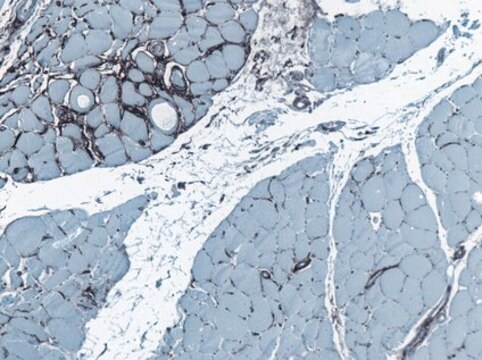SAB4200821
Anti-Fibroblast Surface Protein antibody, Mouse monoclonal
clone 1B10, purified from hybridoma cell culture
Synonym(e):
FSP
About This Item
Empfohlene Produkte
Biologische Quelle
mouse
Antikörperform
purified from hybridoma cell culture
Antikörper-Produkttyp
primary antibodies
Klon
1B10, monoclonal
Speziesreaktivität
human
Verpackung
antibody small pack of 25 μL
Konzentration
~ 1 mg/mL
Methode(n)
immunofluorescence: 5-10 μg/mL using Human foreskin fibroblast Hs68 cells.
Isotyp
IgM
Versandbedingung
dry ice
Lagertemp.
−20°C
Posttranslationale Modifikation Target
unmodified
Angaben zum Gen
human ... S100A4(6275)
Allgemeine Beschreibung
Spezifität
Immunogen
Anwendung
Biochem./physiol. Wirkung
Physikalische Form
Lagerung und Haltbarkeit
Haftungsausschluss
Not finding the right product?
Try our Produkt-Auswahlhilfe.
Empfehlung
Lagerklassenschlüssel
12 - Non Combustible Liquids
WGK
nwg
Flammpunkt (°F)
Not applicable
Flammpunkt (°C)
Not applicable
Analysenzertifikate (COA)
Suchen Sie nach Analysenzertifikate (COA), indem Sie die Lot-/Chargennummer des Produkts eingeben. Lot- und Chargennummern sind auf dem Produktetikett hinter den Wörtern ‘Lot’ oder ‘Batch’ (Lot oder Charge) zu finden.
Besitzen Sie dieses Produkt bereits?
In der Dokumentenbibliothek finden Sie die Dokumentation zu den Produkten, die Sie kürzlich erworben haben.
Unser Team von Wissenschaftlern verfügt über Erfahrung in allen Forschungsbereichen einschließlich Life Science, Materialwissenschaften, chemischer Synthese, Chromatographie, Analytik und vielen mehr..
Setzen Sie sich mit dem technischen Dienst in Verbindung.








